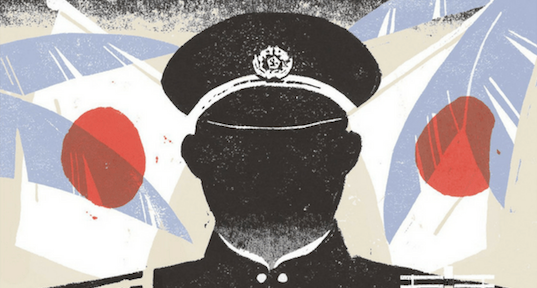As certain places are heating up with a flurry of events, others are remaining cautious and mindful. Still, the good thing about the page is that it remains steadfast, and our work remains something that we can always turn to, celebrate, and share in. This week, our editors are once again bringing you the latest in world literature news, with a new Japanese literary translation workshop centering on heritage speakers and people of colour, a newly virtual Taipei Literature Festival, and a new winner of the prestigious Sheikh Zayed Book Award.
MK Harb, Editor-at-Large, reporting from Lebanon
Poet and academic Iman Mersal has won the prestigious Sheikh Zayed Book Award! Her creative non-fiction work, In the Footsteps of Enayat Al-Zayyat, is part journalistic excellence, part poetic elegy, all while maintaining the sensibility of writing in the life of a complex character. It traces chronicles the late Egyptian writer Enayat Al Zayat, her struggles with mental illness, and her tragic death in the 1960s.
What’s new in Arabic literature? Banipal Magazine’s Spring issue is out, and it’s dedicated to Jerusalem and the acclaimed Palestinian auteur, Mahmoud Shukair, who has penned over forty-five books and six television series. This comes at a time when the Arab literary scene has overwhelmingly expressed its solidarity with the Palestinian people. Also on the subject of Palestine—this spring, I interviewed Palestinian-French writer and researcher, Karim Kattan, over here at Asymptote where we discussed belonging, the craft of writing, and other curious things. Also, Palestinian-Chilean writer Lina Meruane has a new novel out; Nervous System, translated into English by Megan McDowell, deals with the daunting specter of writer’s block. Read a review of the acclaimed work right here on the Asymptote blog!
How about some Arab cabaret? Well-read academic and translator Raphael Cormack’s Midnight in Cairo: The Female Stars of Egypt’s Roaring 20’s is an engrossing retelling of vagabonds, feminists, and performers as they defied gender norms, transgressed class lines, and created iconic productions. Another beautiful and timely publication by Saqi Books is We Wrote in Symbols: Love and Lust by Arab Women Writers. Edited by British-Palestinian writer, Selma Dabbagh, the anthology celebrates and examines the tradition of erotic writing in Arabic literature and its many women pioneers. Lastly, yours truly has a short story out with The Bombay Review, dealing with censorship and artificial intelligence. READ MORE…








